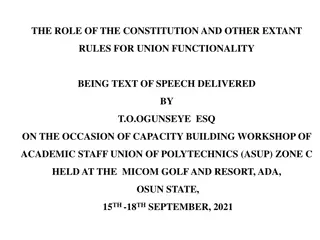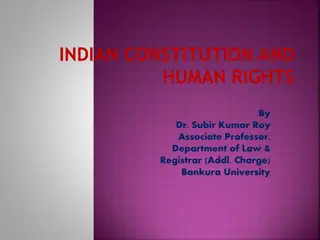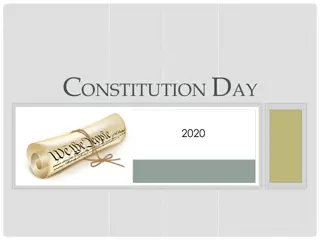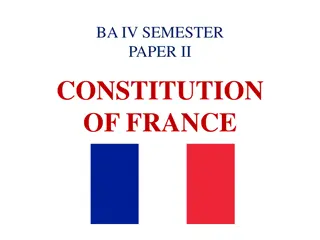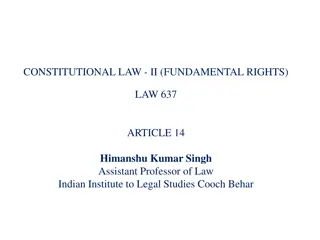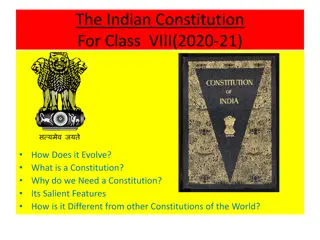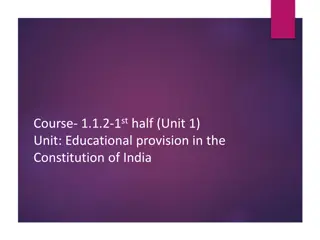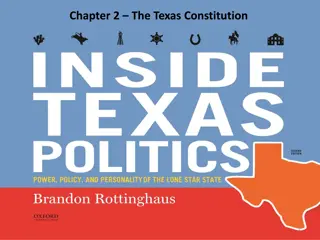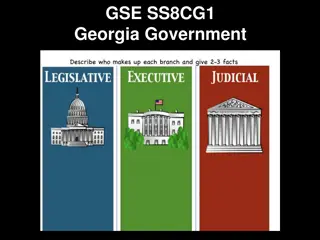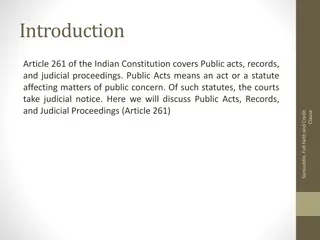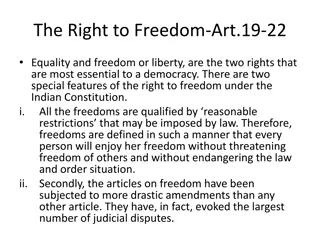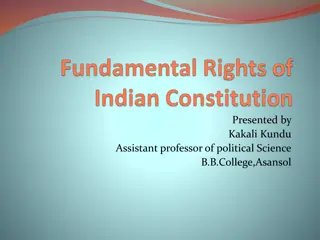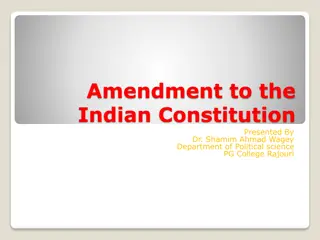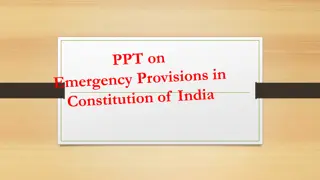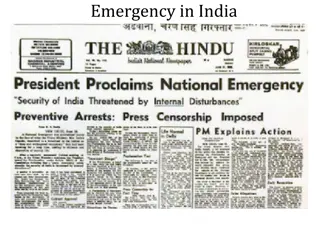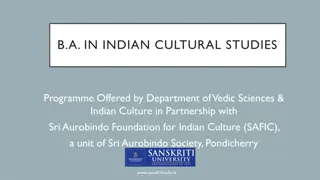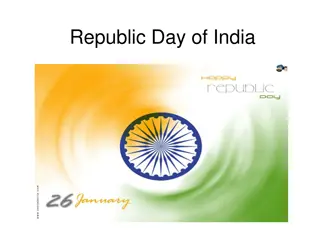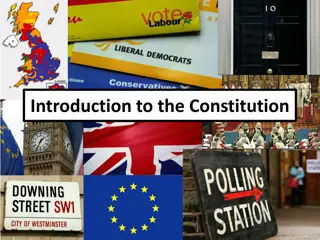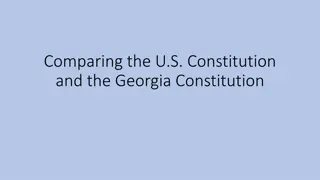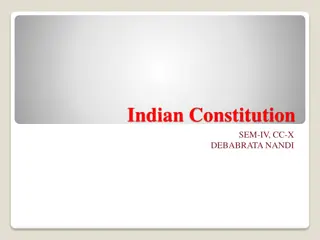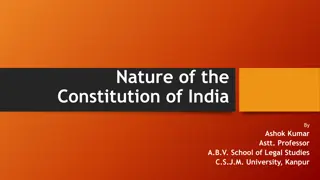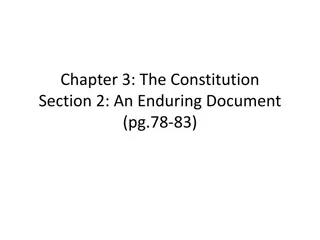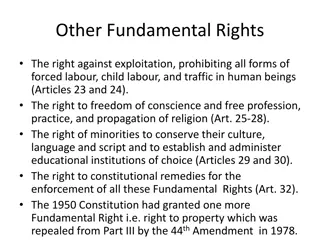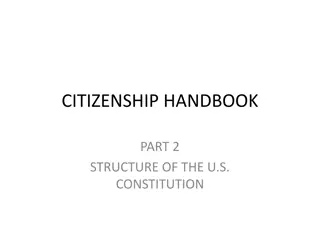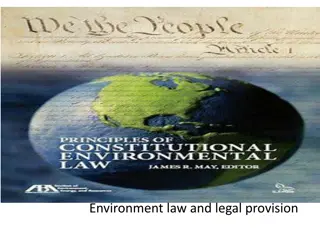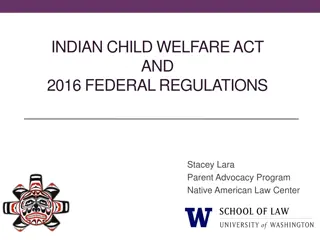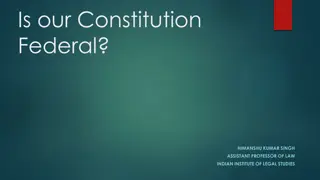Best Indian Wedding photography in Constitution Hill
If you are looking for the Best Indian Wedding photography in Constitution Hill, then contact The Money Shot Weddings. Their team is a team of keen-eyed photographers\/videographers, who possess a great flair to capture the tenderness and affection of the moment. With the experience of over 200 wed
12 views • 6 slides
Best Indian Food In Florida
Want tasty Indian fare in Florida? Che\u00adck out Kohinoor Indian Restaurant. This spot is famous for its Indian flavors, friendly fee\u00adl, and top-best indian food in florida. You'll get a re\u00adal Indian food experience\u00ad at Kohinoor. They boast a long menu full of classic Indian meals.
5 views • 4 slides
Best Indian Restaurant In NJ
Best indian restaurant in nj\u2019s diverse culinary landscape, where Indian cuisine thrives, Spice Rack Indian Fusion stands out as a beacon of excellence. Located in a tropical part of the country, this restaurant has the perfect blend of traditional Indian flavors and innovative cooking technique
1 views • 4 slides
Best Indian Food In Orlando
Saffron Indian cuisine reigns supreme as a beacon of true Indian flavor in Orlando. Located in the heart of the city, it is known for its aromatic biryanis, velvety butter chicken and a variety of dishes that epitomize the flavors of Indian cuisine Every dish at Kesar is prepared with precision and
0 views • 4 slides
Indian Restaurants Florida
Explore indian restaurants florida at Kohinoor Indian Restaurant, a culinary gem in Florida's diverse restaurant scene. Located in Florida, Kohinoor offers an immersive experience in Indian culture. From hearty biryanis to succulent butter chicken, every dish is made with authentic spices and fresh
1 views • 5 slides
Best Indian Restaurant New Jersey
In the heart of New Jersey, Urban Spice is best indian restaurant new jersey, with a reputation for excellence. Located on Oak Tree Road in the heart of South Asian food, Urban Spice offers an extensive menu that celebrates the flavors of Indian cuisine. From complex north Indian dishes like butter
2 views • 7 slides
Role of Constitution and Rules in Union Functionality: Speech by T.O. Ogunseye Esq
Constitution plays a crucial role in governing the affairs of a union like ASUP, ensuring rights protection, disciplinary actions, financial accountability, and more. The ASUP Constitution outlines objectives, member rights, disciplinary measures, subscription rules, election guidelines, and educati
0 views • 12 slides
Indian Constitution and Human Rights: A Comprehensive Overview
The Indian constitution embodies justice in social, economic, and political spheres, aiming for the full development of every individual. Rooted in democratic principles and socialism, the preamble emphasizes liberty, equality, and justice. Drawing wisdom from leaders like Dr. Ambedkar and Mahatma G
0 views • 10 slides
Constitution Day: History and Significance of September 17, 1787
Celebrate Constitution Day by learning about the signing of the United States Constitution on September 17, 1787. Discover the 39 delegates who signed the Constitution, the principles it upholds, and the seven articles that form the foundation of the American government.
2 views • 17 slides
Constitution of France: Salient Features of the Fifth Republic
The Constitution of France, in operation since 1958, aimed to bring stability after years of constitutional changes. It is rigid with complex amendment processes. France has a unitary constitution, a bicameral legislature, and a mix of presidential and parliamentary systems. The 5th Republic Constit
1 views • 25 slides
Oregon Indian Child Welfare Act (ORICWA) Explained - Expert Q&A
The Oregon Indian Child Welfare Act (ORICWA) enhances protections for Indian families by embedding federal law into state law and providing additional guidance to Oregon courts. This comprehensive guide covers the application of ORICWA, involvement of various parties, and criteria for determining In
1 views • 28 slides
Understanding Fundamental Right to Equality in Indian Constitution
The concept of equality before the law and equal protection of laws as enshrined in Articles 14 to 18 of the Indian Constitution are essential for ensuring equal status and opportunities for all citizens. Article 14 ensures equality before the law, prohibiting the state from denying any person equal
1 views • 10 slides
Evolution and Key Aspects of the Indian Constitution
The Indian Constitution, evolving from principles of freedom struggle, serves as a set of rules defining citizen-government relations. It generates trust, limits power, and safeguards fundamental principles. Featuring federalism, it establishes governance at three levels: Centre, State, and Local, s
1 views • 15 slides
Directive Principles of State Policy in the Indian Constitution
The Directive Principles of State Policy in the Indian Constitution provide guidelines for governance, focusing on social justice, economic welfare, and a just society. These principles are inspired by socialist ideology and aim at ensuring social and economic justice by minimizing inequalities, pro
2 views • 16 slides
Evolution of the Texas Constitution: From Independence to Modern Principles
Explore the journey of the Texas Constitution from the roots of rebellion and the Declaration of Independence to the principles outlined in the modern constitution. Learn about key events, changes in governance, and the process of amending the constitution over time.
0 views • 24 slides
Foundations of Georgia's Government and Constitution Structure
Explore the foundations of Georgia's government, including the structure of its state constitution, preamble, bill of rights, articles, and amendments. Learn about the relationship between the Georgia state constitution and the United States Constitution, and delve into the principles and intentions
0 views • 51 slides
Understanding the Indian Federal System
The Indian federal system as defined by the Constitution of India establishes a unique structure where power is divided between the central government and the states. This system features characteristics such as governments at two levels, division of power, a written constitution, independent judici
2 views • 19 slides
Understanding Article 261 of the Indian Constitution
Article 261 of the Indian Constitution addresses public acts, records, and judicial proceedings, emphasizing the federal nature of India's governance structure. It delineates the powers and relationships between the central and state governments through legislative, administrative, and financial dim
0 views • 5 slides
Essentials of Democracy: The Right to Freedom under the Indian Constitution
Equality and freedom are crucial components of any democracy, with the right to freedom holding special significance in the Indian Constitution. This right is characterized by qualifications termed as 'reasonable restrictions', ensuring a delicate balance between individual liberties and societal in
1 views • 7 slides
Understanding Fundamental Rights in the Indian Constitution
Fundamental rights are crucial for developing an individual's personality and dignity in society. The Indian Constitution grants six fundamental rights, including equality, freedom, and protection against exploitation. Despite certain limitations, these rights are essential for upholding individual
0 views • 10 slides
Amendment Process in the Indian Constitution: Overview and Procedure
Amending the Indian Constitution is a crucial process outlined in Article 368. It is designed to maintain the sanctity of the Constitution and prevent arbitrary power. The process involves introducing a Bill, passing it with required majorities in both Houses of Parliament, ratifying by state legisl
2 views • 7 slides
Understanding Emergencies in the Indian Constitution
Dr. Babasaheb Ambedkar described the Indian Constitution as both federal and unitary, transitioning to complete unitary during crises. The Constitution allows for National, State, and Financial emergencies. Article 352 deals with National Emergency, where the President can proclaim it in case of war
0 views • 10 slides
Emergency Provisions in the Indian Constitution: A Historical Overview
The emergency provisions in the Indian Constitution, including National/War Emergency under Article 352 and Constitutional Emergency in States under Article 356, have had significant historical implications. The period of Emergency declared from June 25, 1975, to March 21, 1977, during Indira Gandhi
0 views • 7 slides
B.A. in Indian Cultural Studies Programme by Department of Vedic Sciences & Indian Culture
Explore the B.A. in Indian Cultural Studies programme offered by the Department of Vedic Sciences & Indian Culture in partnership with Sri Aurobindo Foundation for Indian Culture. Delve deeper into the spiritual foundations, history, and key contributions of Indian civilization while preparing for a
0 views • 13 slides
Celebrating Republic Day of India: History, Importance, and Traditions
The Republic Day of India, celebrated on January 26th, marks the adoption of the Indian Constitution in 1950. It signifies the transition from a British Dominion to a republic. Dr. B.R. Ambedkar played a pivotal role in drafting the constitution. The day is commemorated with flag hoisting, parades,
0 views • 10 slides
Celebrate Constitution Day: A Brief History of the U.S. Constitution
Learn about the significance of Constitution Day on September 17th and the journey that led to the creation of the U.S. Constitution. From the challenges posed by the Articles of Confederation to the final signing of the Constitution, delve into the key events and figures that shaped the foundation
0 views • 8 slides
Understanding the Importance of a Constitution in Government
Exploring the significance of a constitution in governance, this content delves into the definition, origins, and key features of the UK constitution. It highlights the need for a constitution to establish rules for government institutions, regulate their relationships, define civil liberties, and p
0 views • 21 slides
A Comparison of US and Georgia Constitutions
A comparison between the US Constitution and the Georgia Constitution highlighting their preambles, articles, and amendment processes. The preamble of each constitution expresses the foundational values and goals of the people. The US Constitution outlines its legislative, executive, and judicial br
0 views • 7 slides
Evolution of the Indian Constitution: A Historic Journey
With 395 articles and 12 schedules, the Indian Constitution, effective since January 1950, is one of the world's longest. Framed over three years from December 1946 to December 1949, the Constituent Assembly painstakingly discussed and refined drafts clause by clause. The history of the Constitution
0 views • 16 slides
Overview of the Federal Structure in the Constitution of India
The Constitution of India showcases a quasi-federal system with a strong centralizing tendency, as discussed by scholars like Kenneth C. Wheare, Sir Ivor Jennings, and Dr. B. R. Ambedkar. The essential features of a federal constitution, such as division of power, supremacy of law, and distribution
0 views • 4 slides
The Evolution of the U.S. Constitution: From Jefferson and Madison to Amendment Processes
Jefferson and Madison held differing views on amending the Constitution, highlighting the balance between adaptability and stability. Despite enduring challenges like slavery, the Constitution remains the oldest written constitution. The rigorous amendment process, outlined in Article V, reflects th
0 views • 10 slides
Fundamental Rights and Directive Principles of State Policy in Indian Constitution
The Indian Constitution guarantees Fundamental Rights such as the right against exploitation, freedom of conscience, and the right of minorities. It also includes Directive Principles of State Policy (DPSP) to guide the government in promoting social welfare. Fundamental Rights and DPSP are meant to
0 views • 6 slides
Understanding the Structure of the U.S. Constitution
The U.S. Constitution is divided into three main parts: the Preamble, the seven Articles that explain the government's plan, and the 27 Amendments which are written changes to the Constitution. The Preamble lists the goals of the Constitution, the Articles detail the powers and responsibilities of e
0 views • 37 slides
Overview of Directive Principles of State Policy in Indian Constitution
Directive Principles of State Policy (DPSP) in the Indian Constitution encompass social, economic, and political programs aimed at realizing ideals of justice, liberty, equality, and fraternity. They are non-justiciable but guide the state in legislative matters. Classified into Socialistic, Gandhia
0 views • 24 slides
Constitutional Safeguard for the Protection of Women in Indian Law
The Indian Constitution provides equality and empowerment for women through measures of positive discrimination. Gender equality is enshrined in the Preamble, Fundamental Rights, Fundamental Duties, and Directive Principles of the Constitution. Various provisions are designed for the benefit of wome
0 views • 11 slides
Study Guide: U.S. Constitution Flash Cards for Test Success
Explore flashcards covering key facts about the U.S. Constitution, including details about the Declaration of Independence, the Constitutional Convention, major political parties, the Preamble, goals of the Constitution, branches of government, and more. These visual aids will help you ace your test
0 views • 103 slides
Certificate Courses in Indian Cultural Studies by Department of Vedic Sciences & Indian Culture
Explore month-long certificate courses in Indian Cultural Studies offered by the Department of Vedic Sciences & Indian Culture in collaboration with Sri Aurobindo Foundation for Indian Culture. Delve into India's rich cultural heritage to gain insights into ancient wisdom traditions, prepare for con
0 views • 8 slides
Environmental Protection and Legal Provisions in Indian Constitution
The Indian Constitution mandates environmental protection as a responsibility of both the State and every citizen. Articles 48-A, 51-A(g), and 47 emphasize the State's duty to safeguard the environment, wildlife, and public health, while also making it a fundamental duty of citizens. The 42nd amendm
0 views • 19 slides
Overview of Indian Child Welfare Act and 2016 Federal Regulations
The Indian Child Welfare Act (ICWA) of 1978 is a federal law that aims to protect the best interests of Native American children and promote the stability of Indian tribes and families. The law establishes minimum federal standards for the removal and placement of Indian children, reflecting the uni
0 views • 27 slides
Understanding the Federal Features of the Indian Constitution
The Indian Constitution exhibits a unique blend of federal and unitary characteristics, termed as quasi-federal. This constitutional setup grants power to both the center and states, yet allows for central intervention in certain circumstances. The Parliament holds authority over creating new states
0 views • 4 slides






